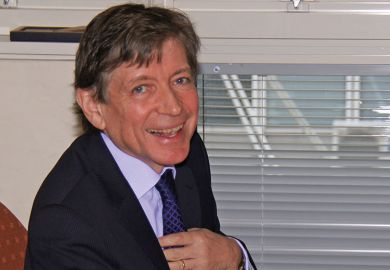An internationally renowned expert on interprofessional education has died.
Scott Reeves was born in Chipping Sodbury, Gloucestershire in December 1967 and began his higher education at institutions that later merged to form London Metropolitan University: the University of North London, where he studied applied social science, and London Guildhall University, where he completed an MSc in social research methods. This was followed by a PhD at City, University of London, focusing on the evaluation of a pioneering training scheme at several London hospitals where medical, nursing, occupational therapy and physiotherapy students were brought together for a form of learning based on exposure to the real-life challenges of delivering team-based care.
Much of Professor Reeves’ subsequent transatlantic research career was devoted to assessing the value of such interprofessional training, and whether better communication and teamwork actually translated into better outcomes for patients. After starting as a research assistant at City, he went on to serve as research and then senior research fellow there and at London South Bank University.
Now well established in the field, Professor Reeves got the chance to spend almost a decade in North America, starting in Canada as associate professor (2005-10) and then professor (2010-11) at the University of Toronto’s Faculty of Medicine, as well as director of research at St Michael’s Hospital (2006-11). He later moved to the University of California, San Francisco as professor of social and behavioural sciences and founding director of the Center for Innovation in Interprofessional Education (2011-13).
Professor Reeves’ eminence in the field was recognised when he was appointed editor-in-chief of the Journal of Interprofessional Care in 2009. Four years later, he returned to the UK to take up a position as professor in interprofessional research at Kingston University and St George’s, University of London.
“The journal and his international career meant [Professor Reeves] was very well known globally, and in demand as a visiting expert advising countries as diverse as Brazil, New Zealand and the United States with strategies to develop interprofessional solutions to benefit struggling health systems,” said Fiona Ross, former executive dean of the Faculty of Health, Social Care and Education at Kingston and St George’s.
“When Scott asked me to mentor him,” Professor Ross went on, “it seemed a good opportunity to have the occasional lunch. We would talk about families, emerging ideas, work on grant applications and enjoy a good old academic gossip. The last time we met in Tartine in Tooting Broadway, he insisted on paying – I said only if it was my turn next. It makes me very sad that there will never be another time.”
Professor Reeves died unexpectedly on 3 May, the very day he had launched a new research group. He is survived by his wife Ruth and three sons.
Register to continue
Why register?
- Registration is free and only takes a moment
- Once registered, you can read 3 articles a month
- Sign up for our newsletter
Subscribe
Or subscribe for unlimited access to:
- Unlimited access to news, views, insights & reviews
- Digital editions
- Digital access to THE’s university and college rankings analysis
Already registered or a current subscriber?









